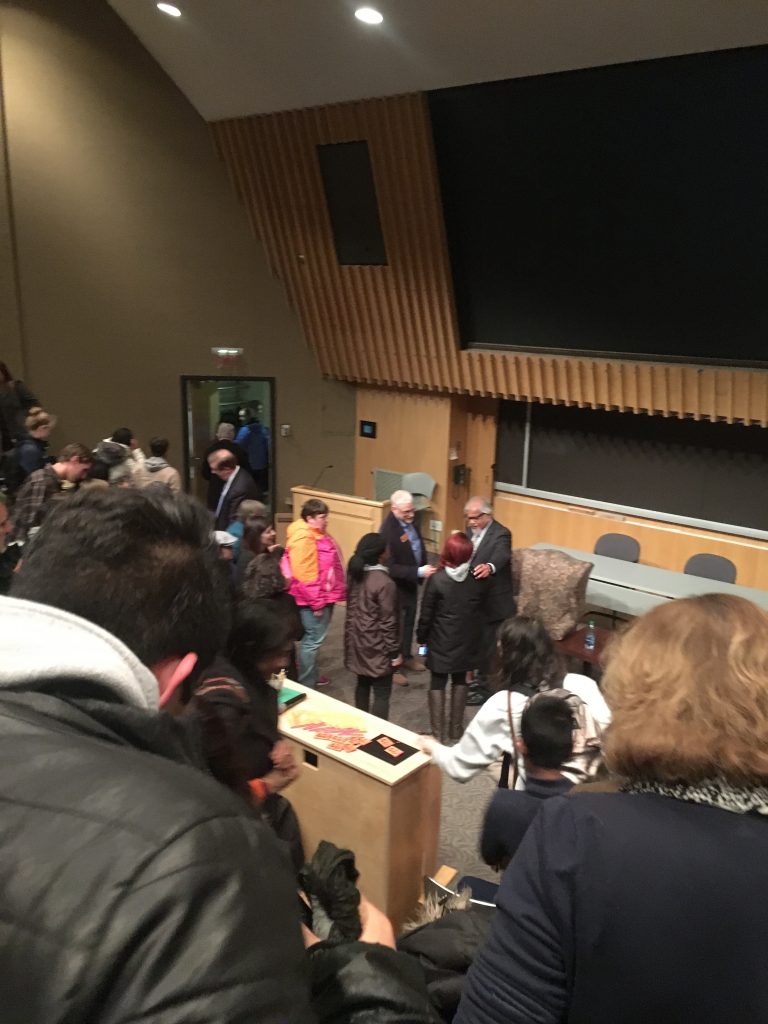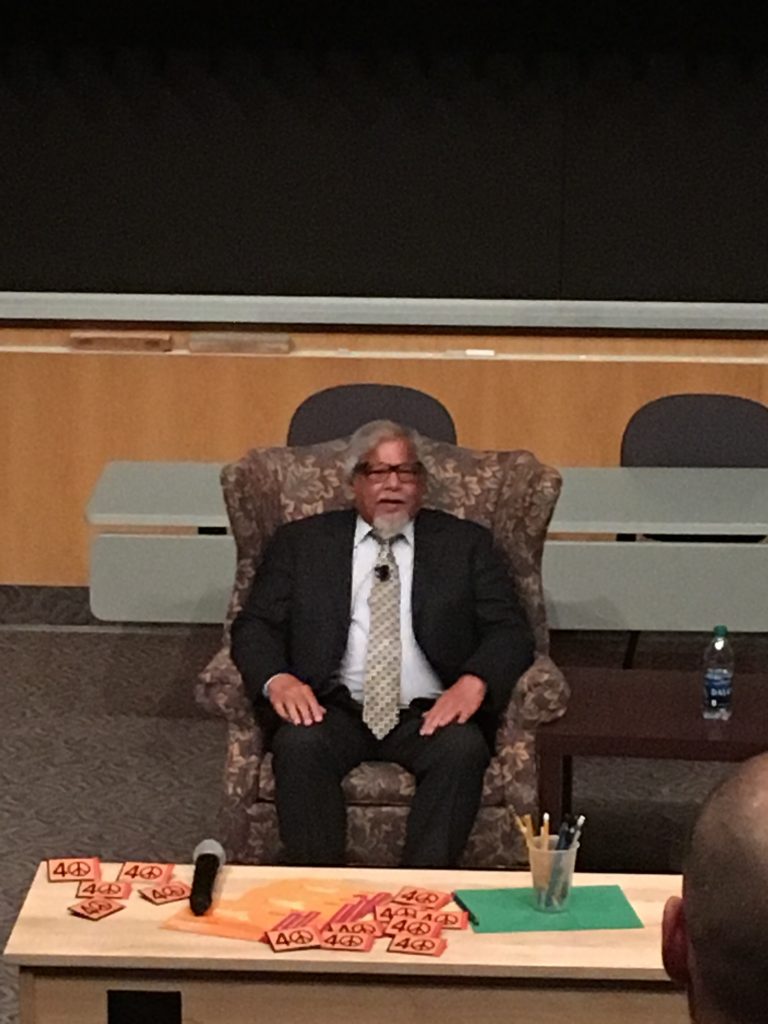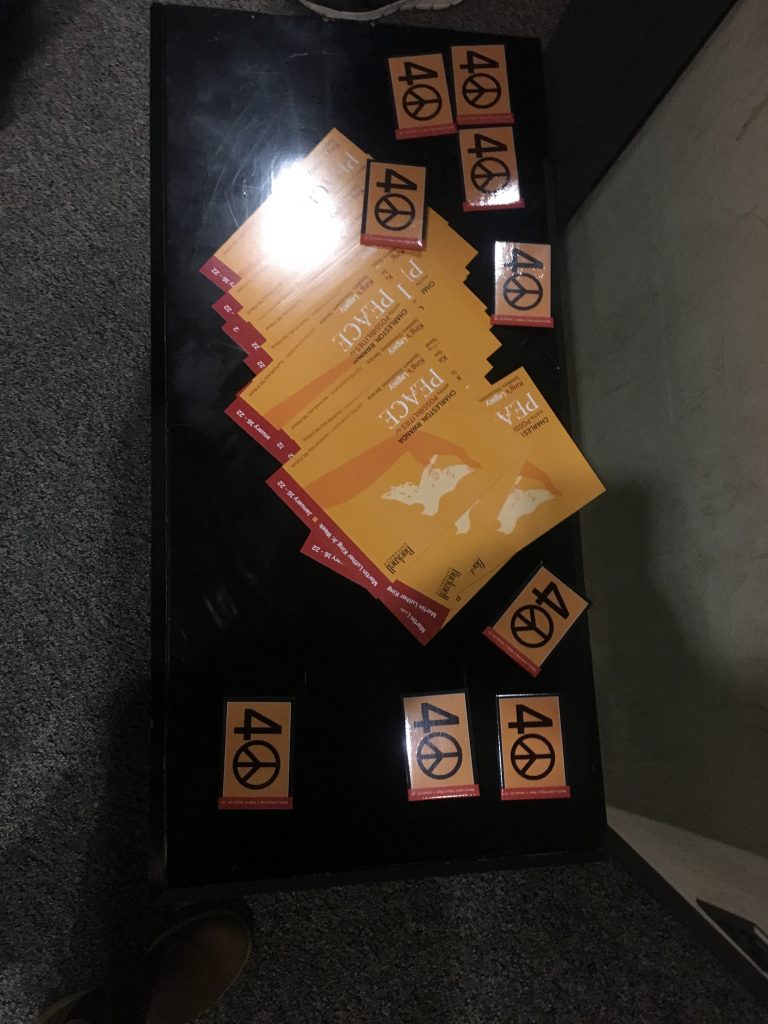
Everything Arun Gandhi told us at Bucknell
He believes tolerance should not even be a word
In an event sponsored by ATHENA, Dr. Arun Gandhi, peace activist and grandson of Mahatma Gandhi, spoke at Bucknell. He continues the legacy of his grandfather, who went to extreme measures to liberate the oppressed people of the world.
About 150 Bucknellians came to hear him. For an hour, he recounted anecdotes about his grandfather. Entirely relaxed, he opened by talking about the time Martin Luther King Jr. came to Mahatma Gandhi’s former house and stayed in one room with no furniture except a mattress, a little desk and a spinning wheel, meditating for nearly 24 hours until he felt he was ready to spiritually lead his country through civil rights.

The students who came to hear Dr. Gandhi speak
He recalled his grandfather holding him to his chest when he interrupted his meetings with important people, but never yelling at him or shooing him away. He told us about the records he was made to keep of all the violent things he had said and done throughout the day.

Arun Gandhi telling his stories
As he finished his anecdotes and we moved on to the question session, the students were left speechless. For a full minute no one said anything, either to Dr. Gandhi or to each other. Eventually, they started asking questions about non-violence and asking how to change the world. He answered our questions with the same serenity he told us stories.
When asked the question, “Do you think there’s some justification in defensive violence?” his answer was surprising. It was hard to imagine that he wouldn’t say yes, that in extenuating circumstances violence is permissible, but instead he told us to try to understand the reason for the person committing the first act of violence. With reference to 9/11, he said, “There has to be a reason for it,” they didn’t just wake up that day and decide today, “we will fly planes into the world trade center.”‘

For peace
Perhaps the most relevant advice he gave us was with regards to tolerance, a word he does not believe should exist at all. It’s a word he believes implies a lack of respect, and said the following:
“We are not here by accident. We are all here for a purpose. And the least of the purpose is that our existence on this earth should make this place a little better than we found it, so we have to live a life where we can improve, not only ourselves, but improve the society around us. And it’s only when we understand that responsibility that we will be able to accept each other as human beings.”
